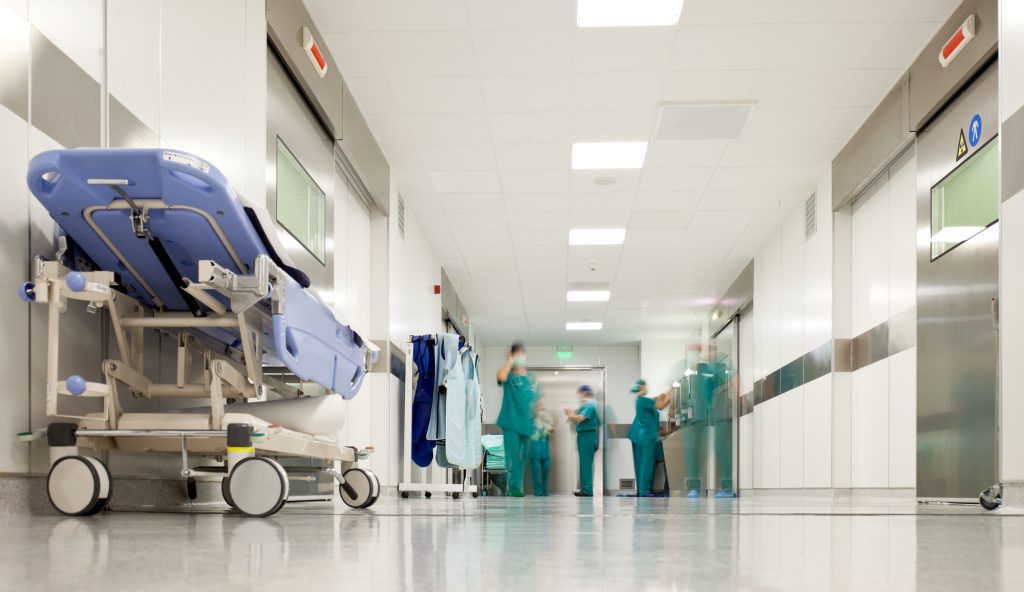An AI-based patient safety solution developed by Israeli medical tech startup MedAware identified over 10,000 potential medical errors and adverse drug events, with an accuracy rate of over 90 percent, according to a new study co-authored by Harvard researchers.
The study, published last month by the Joint Commission Journal on Quality and Patient Safety, analyzed MedAware’s machine learning-enabled clinical decision support platform, designed to prevent medication-related errors, at the outpatient clinics of Massachusetts General and Brigham and Women’s Hospitals. The system flagged 10,668 potential errors and adverse drug events in retrospect on 373,992 patients.
SEE ALSO: OurCrowd Launches New $50M Fund Focused On Disruptive Medical Tech
The study found that 92 percent of warnings generated by MedAware were accurate based on the data available, and 72.7 percent of those warnings were considered “clinically valid.” In addition, 68.2 percent of the warnings would not have been flagged by existing decision support systems, according to the findings.
MedAware said that the implementation of the technology at those hospitals translated to savings of some $1.3 million during the study’s duration. If one takes into account the average number of outpatient visits in the US annually, this translates to a potential cost savings of $800 million and prevention of over 13 million medication errors, MedAware argued.

“This study shows that MedAware’s system performed well in identifying important medication-related errors in the ambulatory setting, and that implementing it could result in substantial cost savings,” said Dr. David Bates, a study co-author, Professor at Harvard Medical School, and Director of the Center for Patient Safety Research & Practice at Brigham and Women’s Hospital
“MedAware’s application enables systems to catch errors they didn’t know they had and which would not have been caught using existing systems—these can be very serious and have major consequences,” said Dr. Bates.
Indeed, medical errors are very dangerous. In a widely circulated study published in 2016 by the Maryland-based John Hopkins School of Medicine, researchers argued that medical error was the third-leading cause of death in the United States (after heart disease and cancer). According to the study, more than 250,000 deaths per year in the US are due to medical mistakes. The findings have been disputed and a different study published in 2019 found that the number of deaths per annum due to adverse effects of medical treatment (AEMT) including adverse drug events, medication-related errors, and medical misadventures (accidental treatment or dosage, for example) may be up to 80 times lower.

These errors are also very costly and can amount to over $20 billion per year in wasteful spending in the United States, says Dr. Gidi Stein, a practicing physician who is also CEO and co-founder of MedAware.
Dr. Stein founded MedAware in 2012 with Tuvik Beker, to detect and minimize catatrosphic medication errors and transform patient safety standards through sophisticated tech.
“When you consider that this study took place in two of the safest, most advanced outpatient clinics in the US, and there was still a positive ROI due to errors prevented, you can understand how implementing MedAware’s technology across the healthcare system has the potential to save the healthcare system hundreds of millions of dollars in outpatient settings alone,” Dr. Stein tells NoCamels.
Dr. Ronen Rozenblum, assistant professor at Harvard Medical School and director of business development for the Center for Patient Safety Research & Practice at Brigham and Women’s Hospital was the lead author of the study. He said that MedAware “offers both measurable improvement in patient safety and significant potential cost savings to hospitals at a time when healthcare systems must find every opportunity to drive efficiencies from a financial perspective.”
“Because it is not rule-based, MedAware represents a paradigm shift in medication-related risk mitigation and an innovative approach to improving patient safety,” added Dr. Bates.
MedAware’s clinical impact in Israel
MedAware’s technology is already at work in Israeli hospitals like Sheba Medical Center at Tel HaShomer Hospital and Assuta Ashdod Medical Center. MedAware is fully integrated into the electronic medical records system and the physician’s workflow, explains Dr. Stein.
Sign up for our free weekly newsletter
SubscribePrescriptions deviating greatly from the spectrum of standard treatment patterns are flagged as potential errors, with high specificity and low alert fatigue. Alerts are displayed at the point of prescribing but also asynchronously, following a change in the patient’s status that might render one of the active medications dangerous to the patient.

The system covers 40 percent of the Israeli population (inpatients and outpatients), according to Dr. Stein.
“MedAware saves its users an estimated $5.5 – $8.5 dollars for each dollar spent. These savings, which over the course of time become significant, are also applicable to the Israeli market,” he adds.
SEE ALSO: Sheba Medical Center Partners With Tele-Medicine Startup For At-Home Cancer Patient Monitoring
MedAware and Sheba Medical Center published research last summer that also validated the clinical impact of the company’s platform. The findings were published in the Journal of American Medical Informatics Association (JAMIA) in a study entitled, “Reducing drug prescription errors and adverse drug events by application of a probabilistic, machine-learning based clinical decision support system in an inpatient setting.”
In the study, led by Dr. Gadi Segal, head of internal medicine at Sheba, physicians analyzed results in a single medical ward after a hospital-wide live implementation of MedAware into the center’s existing electronic medical record system. The platform monitored all medical prescriptions over 16 months, with the department’s staff assessing alerts for accuracy, clinical validity, and usefulness and recording all responses of physicians to alerts in real-time.
The results of the study demonstrated a low overall burden, with MedAware-generated warnings for only 0.4 percent of all prescriptions.
“Our mission has always been simple: Improve patient safety by preventing avoidable medication-related errors and adverse drug events. We provide an essential layer of safety for providers and their patients,” said Dr. Stein
Related posts

Israeli Medical Technologies That Could Change The World

Harnessing Our Own Bodies For Side Effect-Free Weight Loss

Missing Protein Could Unlock Treatment For Aggressive Lung Cancer




Facebook comments